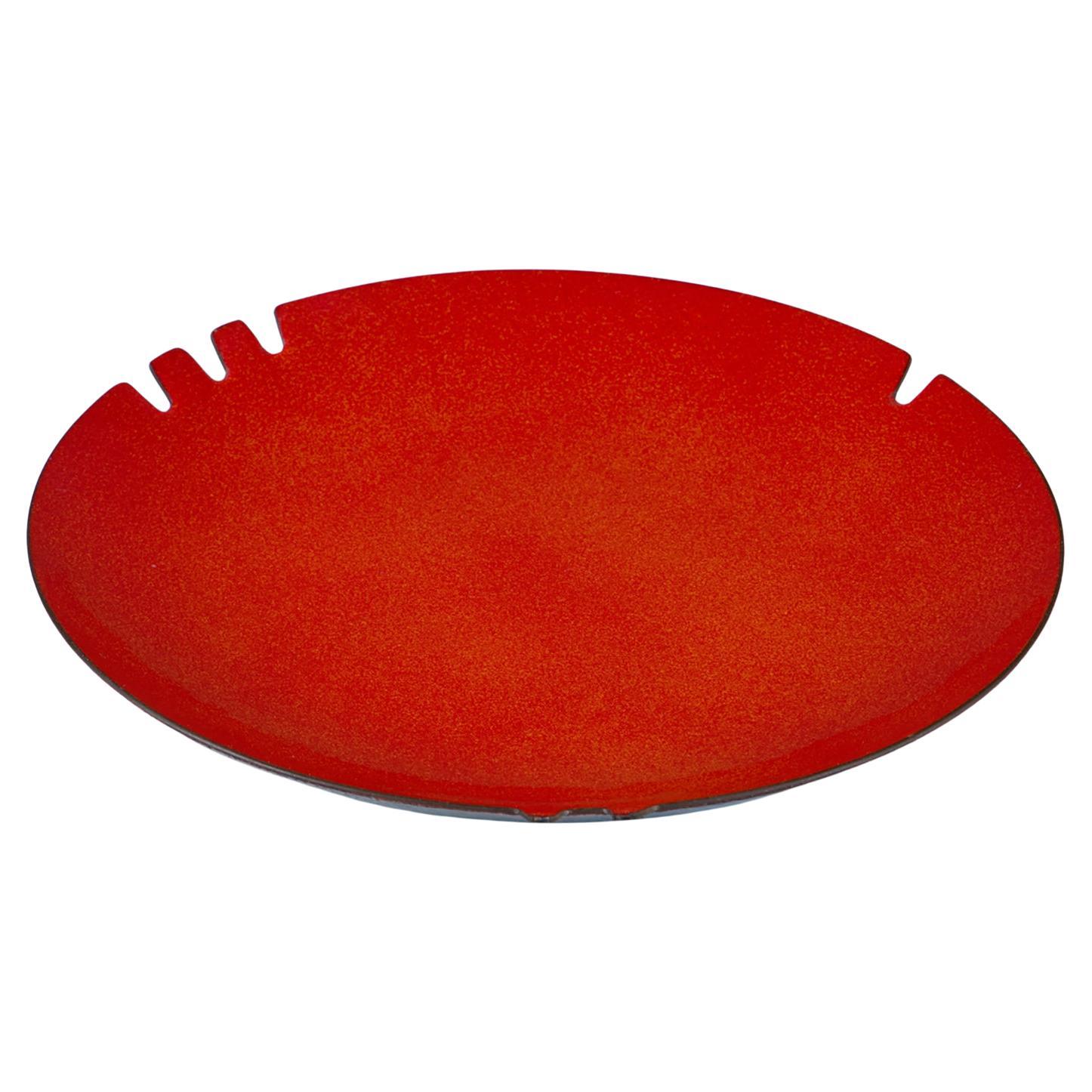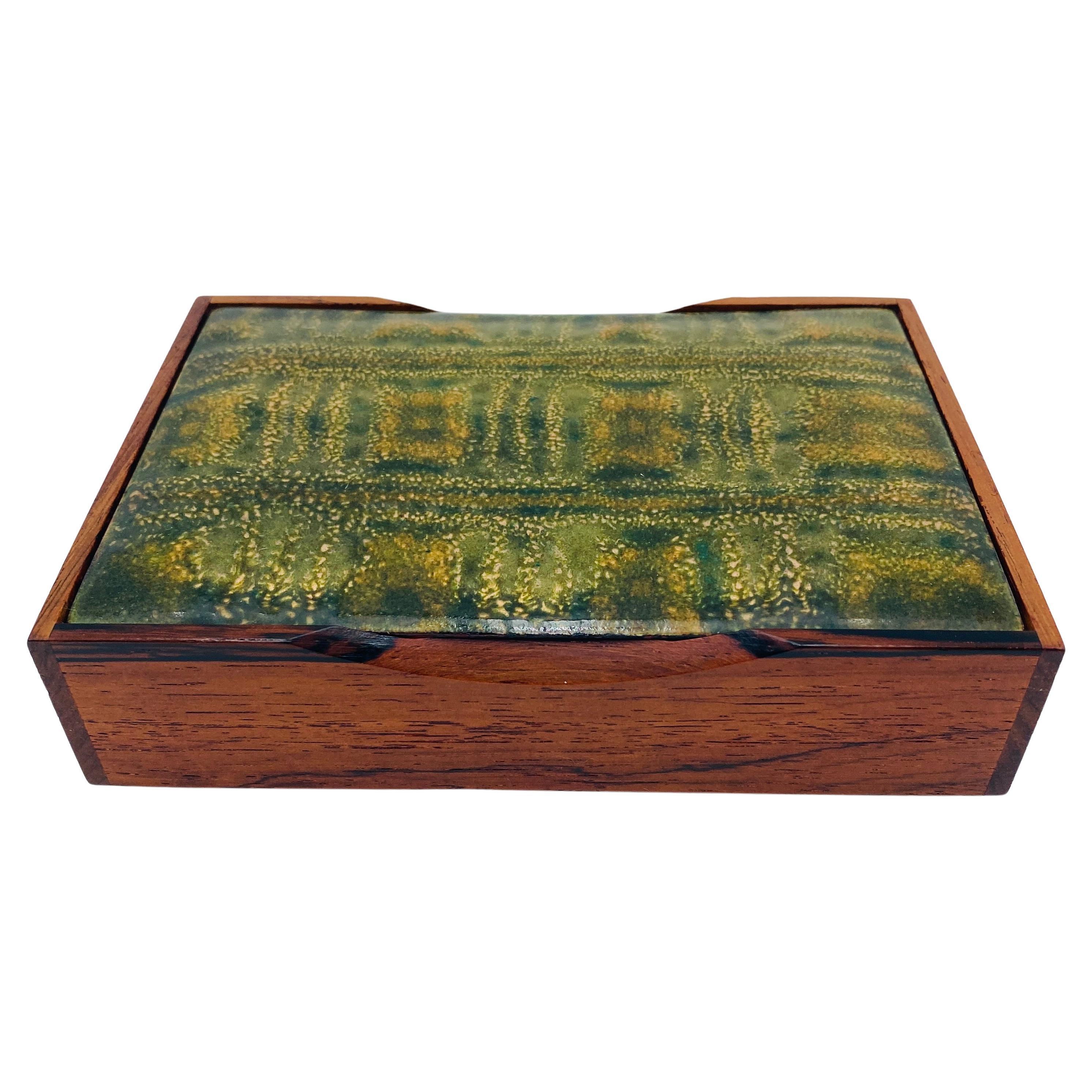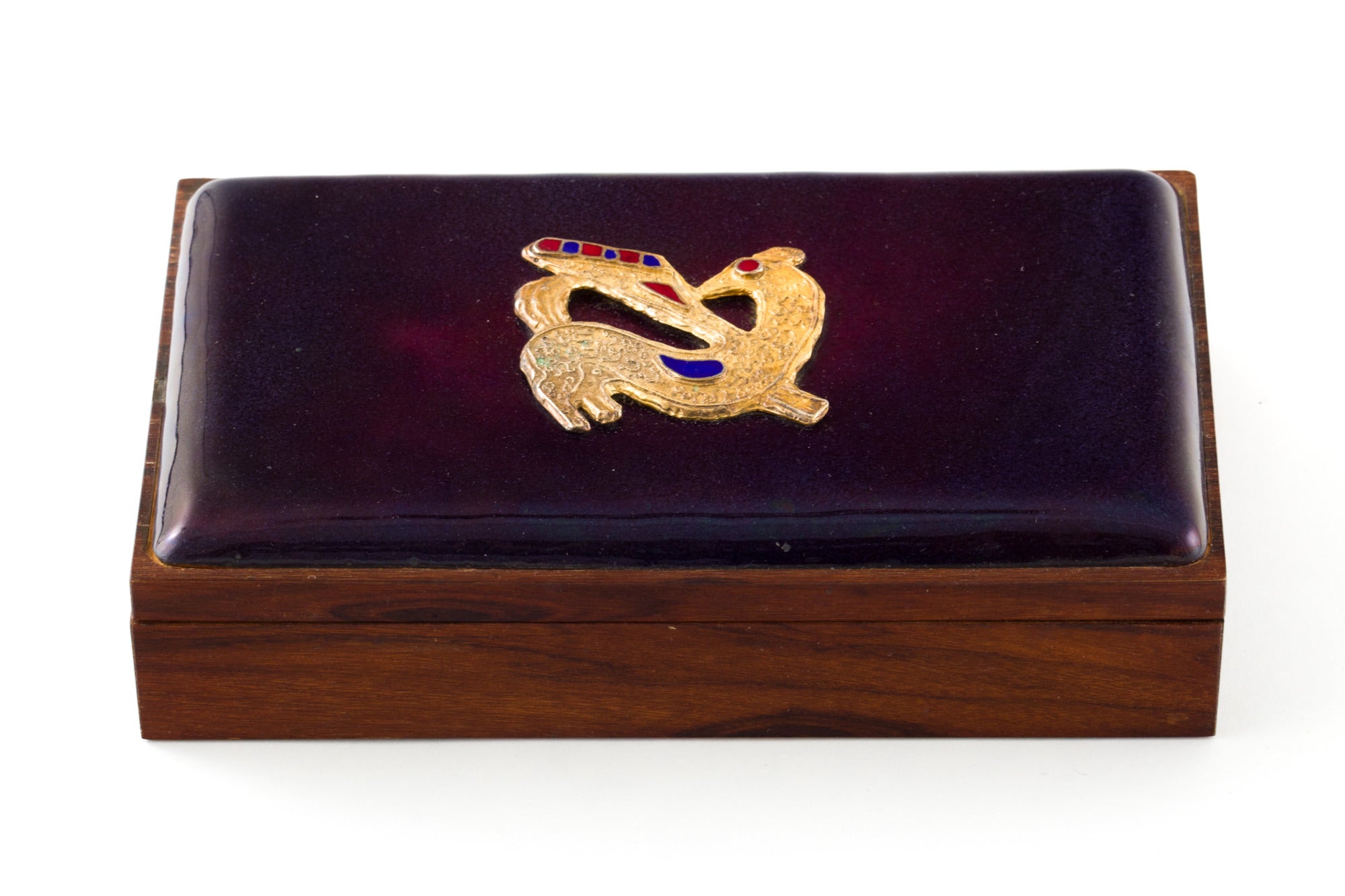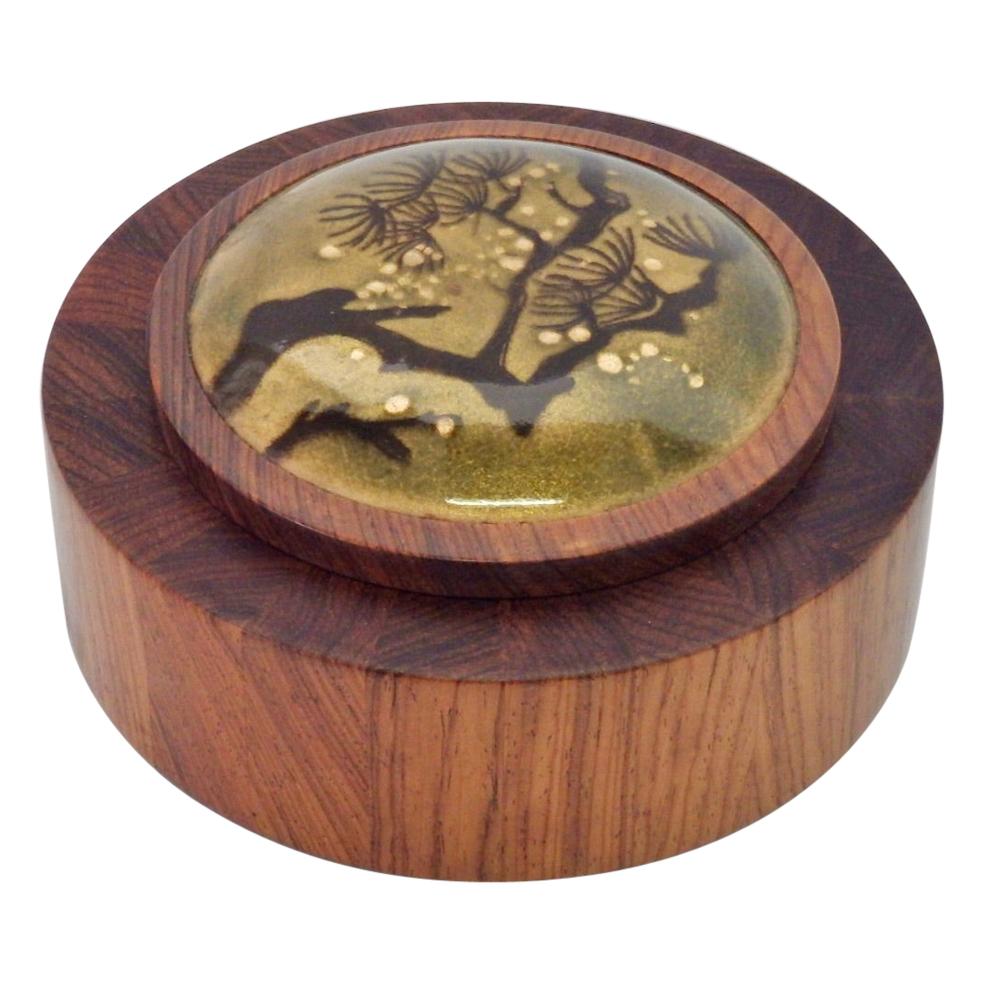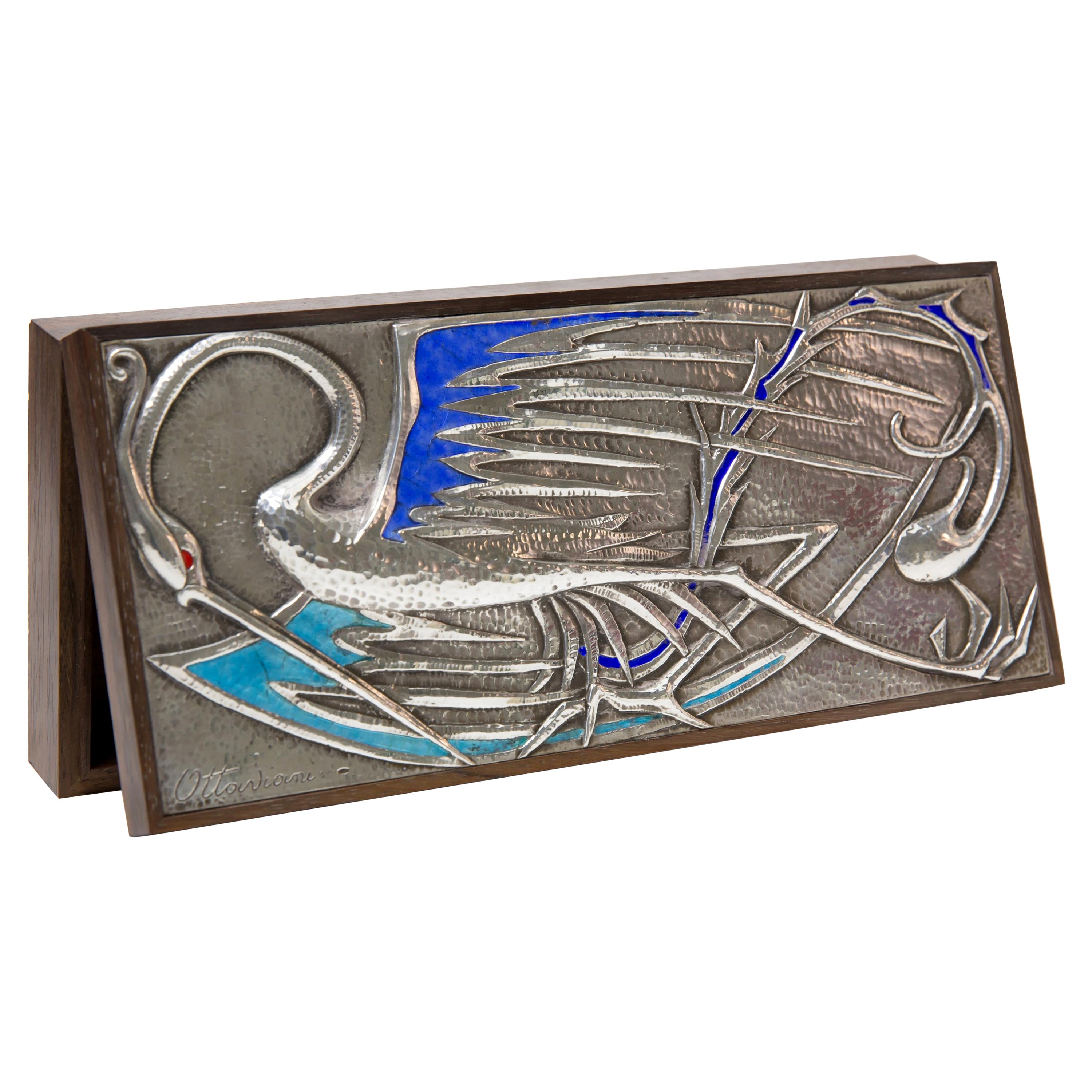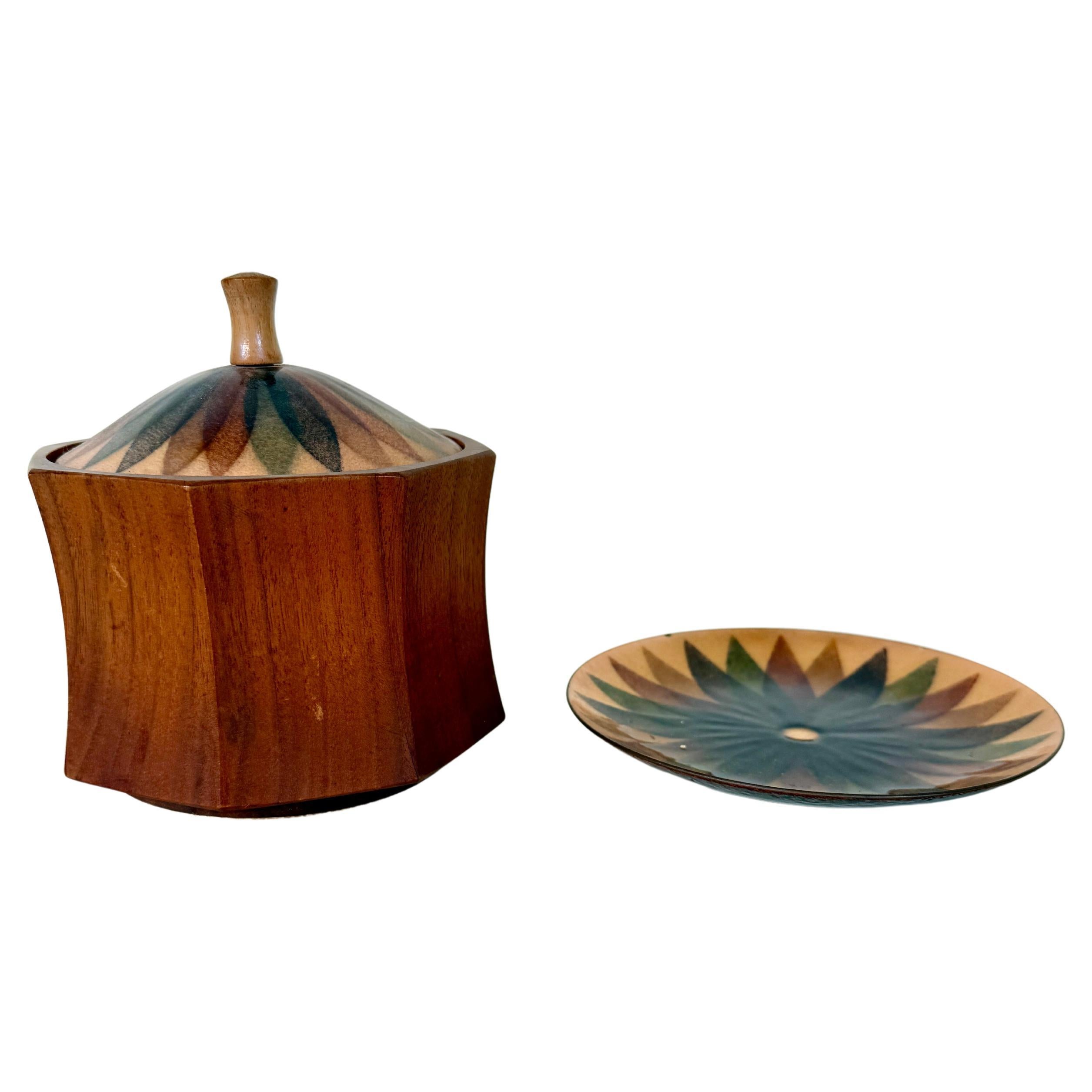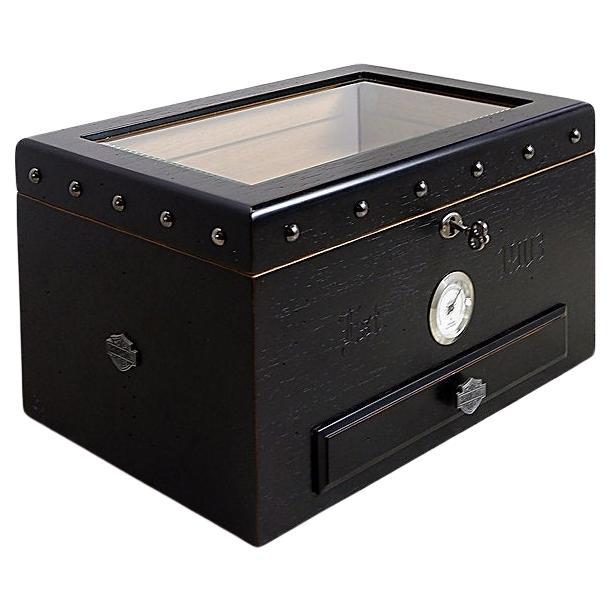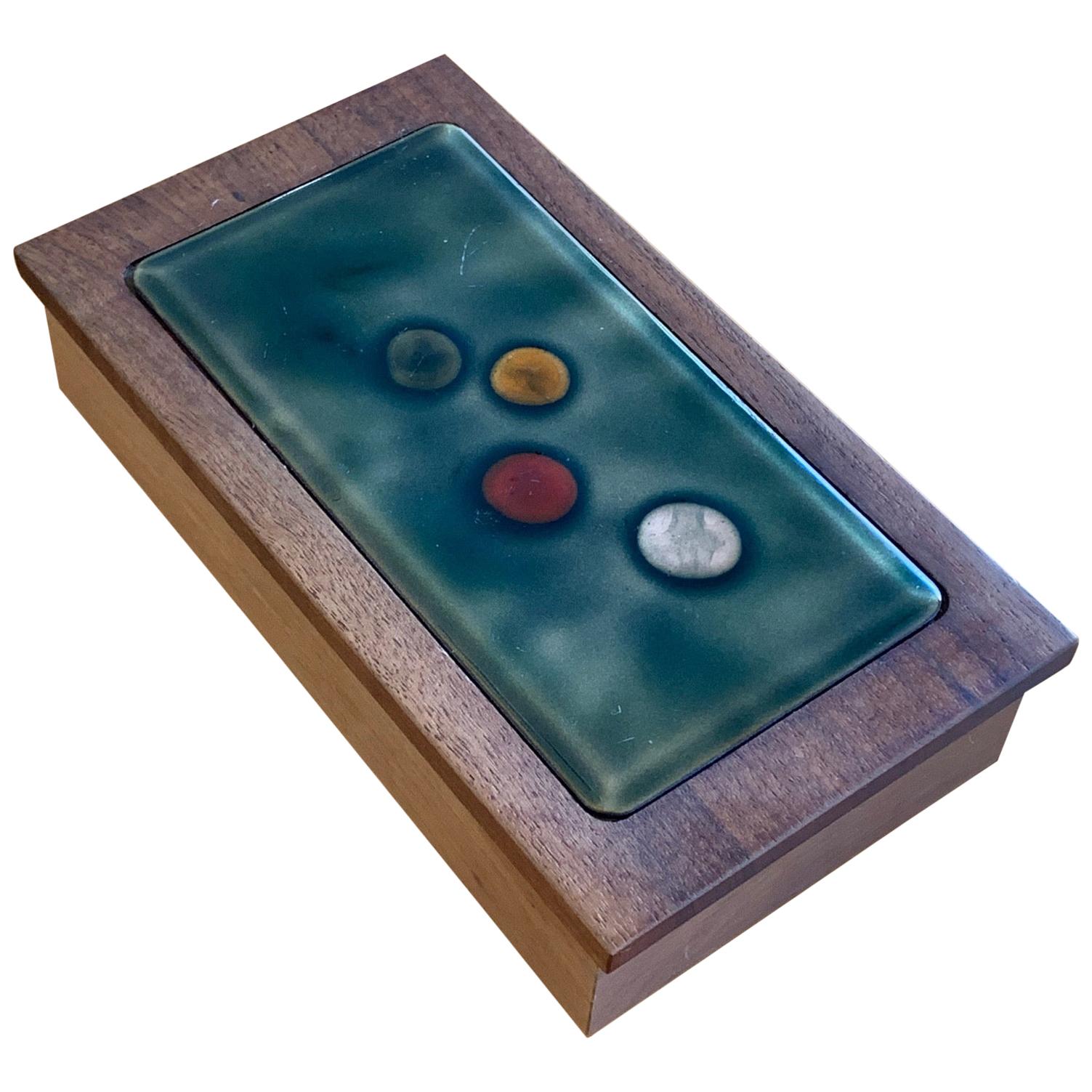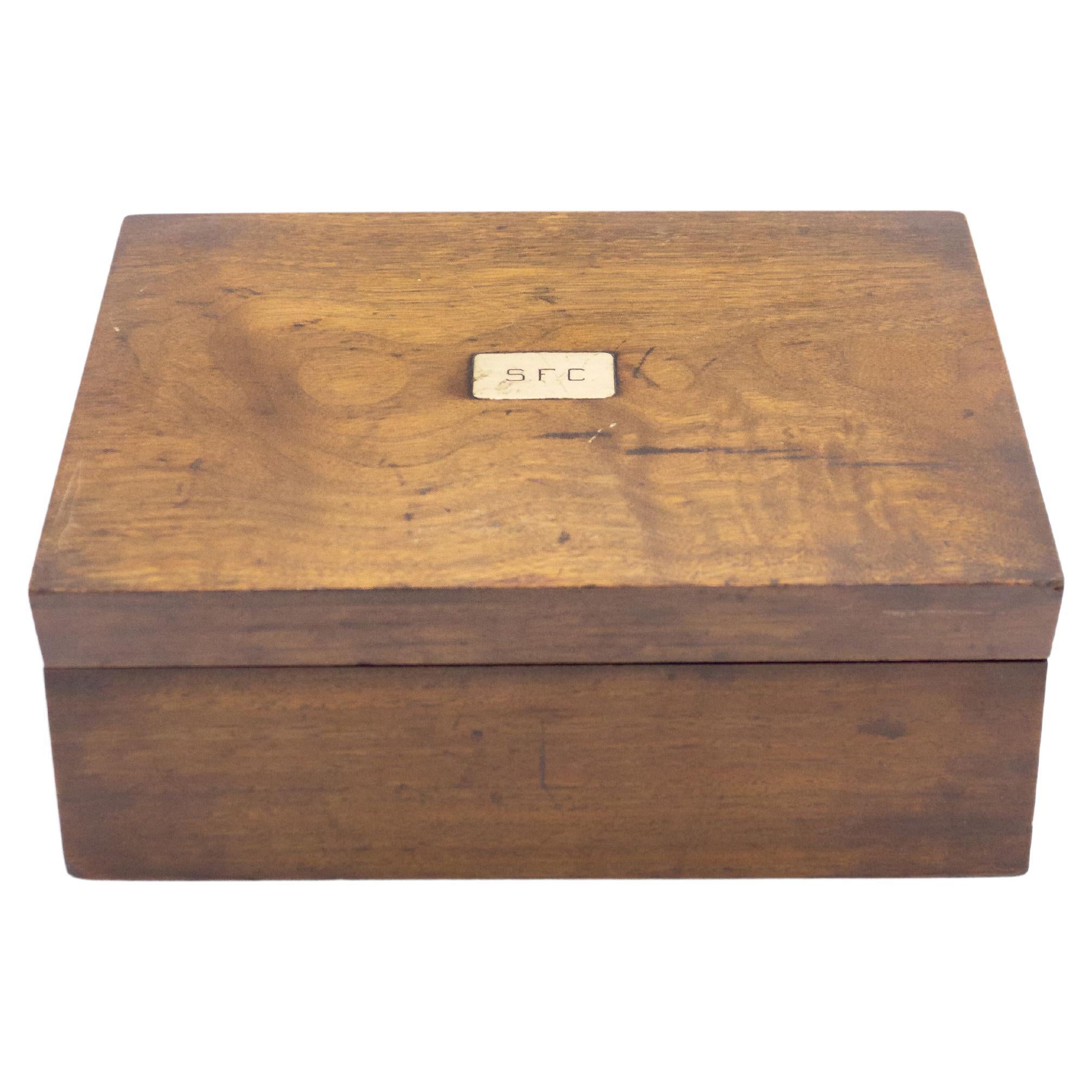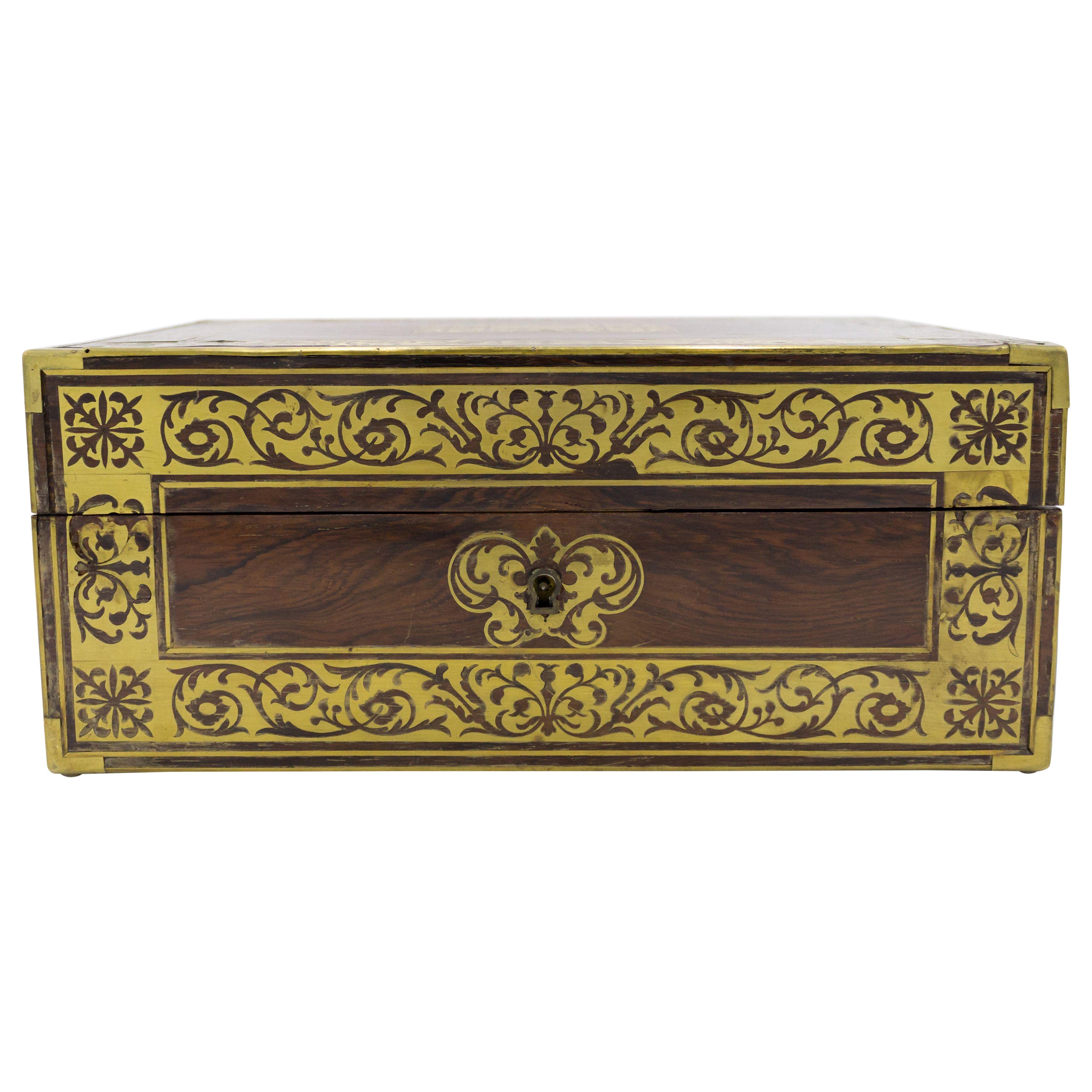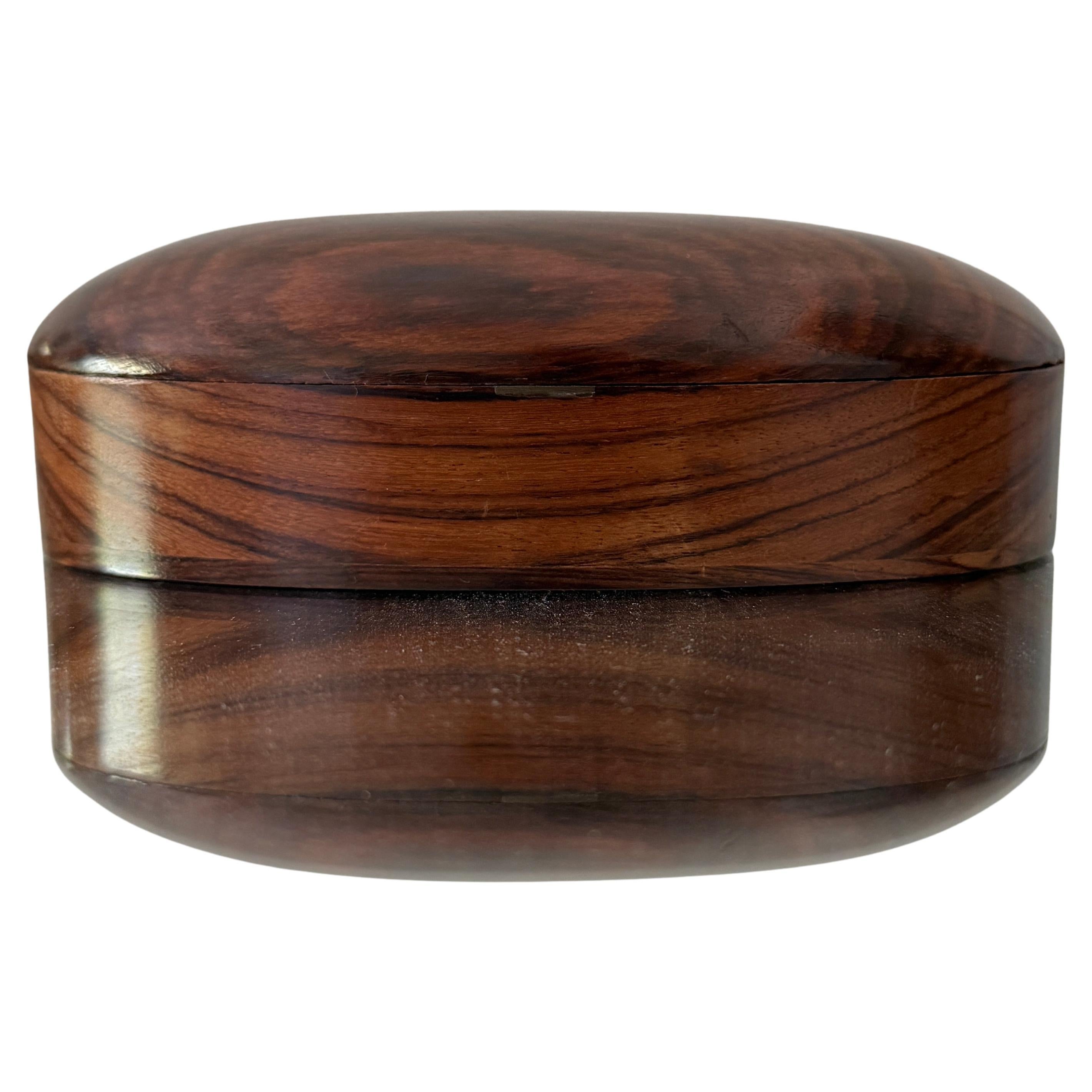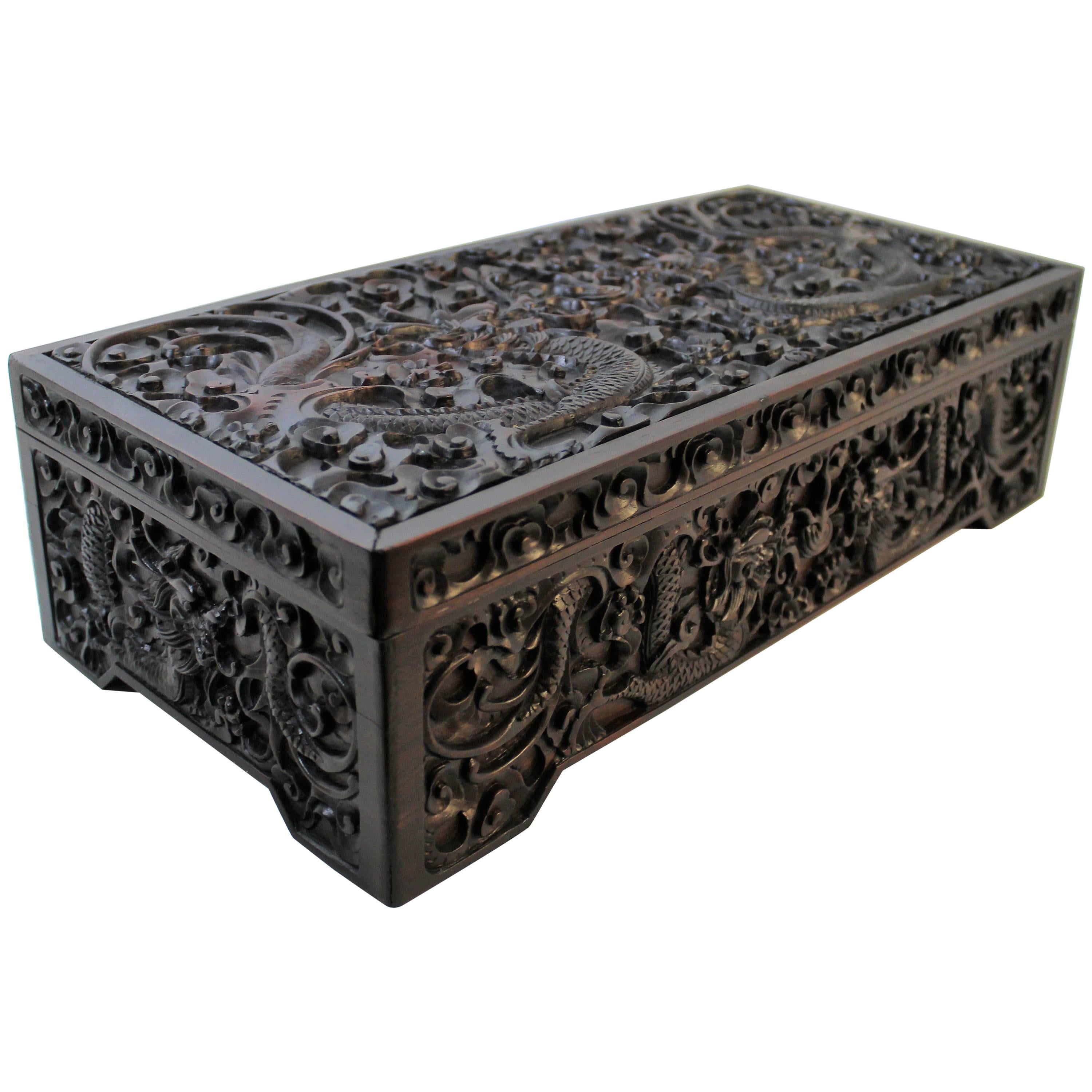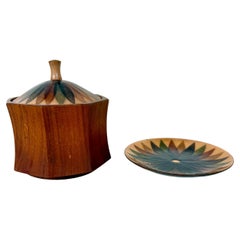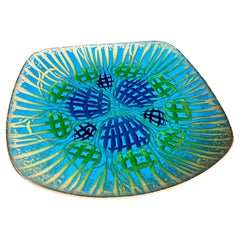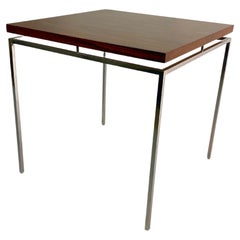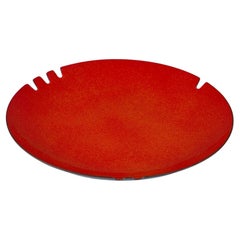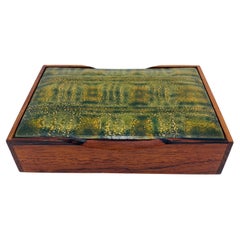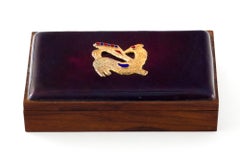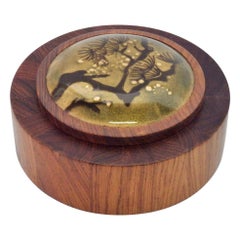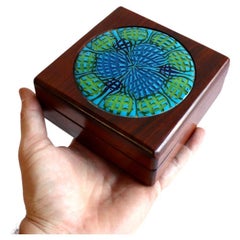
Annemarie Davidson Enamel Rosewood Box
View Similar Items
Want more images or videos?
Request additional images or videos from the seller
1 of 8
Annemarie Davidson Enamel Rosewood Box
$599List Price
About the Item
- Dimensions:Height: 2 in (5.08 cm)Width: 5 in (12.7 cm)Depth: 5 in (12.7 cm)
- Materials and Techniques:
- Place of Origin:
- Period:
- Date of Manufacture:circa 1960s
- Condition:Wear consistent with age and use.
- Seller Location:San Diego, CA
- Reference Number:1stDibs: LU6417230270932
About the Seller
5.0
Gold Seller
Premium sellers maintaining a 4.3+ rating and 24-hour response times
Established in 2020
1stDibs seller since 2022
65 sales on 1stDibs
Authenticity Guarantee
In the unlikely event there’s an issue with an item’s authenticity, contact us within 1 year for a full refund. DetailsMoney-Back Guarantee
If your item is not as described, is damaged in transit, or does not arrive, contact us within 7 days for a full refund. Details24-Hour Cancellation
You have a 24-hour grace period in which to reconsider your purchase, with no questions asked.Vetted Professional Sellers
Our world-class sellers must adhere to strict standards for service and quality, maintaining the integrity of our listings.Price-Match Guarantee
If you find that a seller listed the same item for a lower price elsewhere, we’ll match it.Trusted Global Delivery
Our best-in-class carrier network provides specialized shipping options worldwide, including custom delivery.More From This Seller
View AllAnnamarie Davidson Copper Enamel Plate & Lidded Wood Bowl –
By Annemarie Davidson
Located in San Diego, CA
A stunning Mid-Century Modern studio craft set by acclaimed California artist Annamarie Davidson, featuring a hand-enameled copper plate and matching lidded wood bowl. Known for her ...
Category
Vintage 1960s American American Craftsman Decorative Boxes
Materials
Copper, Enamel
Annemarie Davidson GhostLine Enamel and Copper Dish in Blue Hues
By Annemarie Davidson
Located in San Diego, CA
A wonderful enameled copper plate by Annemarie Davidson of Sierra Madre. The design features incised rays emanating from the famous jewel-like structures offset from the center of plate. This pattern is sometimes known as "GrooveLine" or "GhostLine". This is one of the nicest looking ones we've seen. An enchanting blue, green, and yellow enamel and copper...
Category
Vintage 1960s American Mid-Century Modern Decorative Bowls
Materials
Copper, Enamel
Vintage Annemarie Davidson Enamel Plate – Mid-Century Modern Studio Art on Coppe
By Annemarie Davidson
Located in San Diego, CA
This striking octagonal enamel plate by Annamarie Davidson exemplifies the bold innovation and craftsmanship of mid-century modern design. Radiating with dynamic energy, the plate features a mesmerizing composition of raised circular forms in vibrant blues, soft lavenders, lemon yellows, and aquas. These biomorphic shapes pulse from the center outward, dramatically set against a richly textured field of radiating copper-brown lines over a vivid electric blue enamel ground. The plate’s dimensionality and meticulous surface treatment create a luminous, almost cosmic effect—an exceptional example of Davidson’s signature style.
Annamarie Davidson was a pivotal figure in the American studio enamel movement during the mid-20th century. Working primarily in the 1950s and 60s, Davidson was part of a wave of California-based artists who elevated enameling from a craft tradition to a fine art form. Her work is celebrated for its rich color palettes, playful abstraction, and masterful command of vitreous enamel on copper. Each piece is not only a testament to her technical skill but also to her ability to harmonize modernist aesthetics with expressive, organic forms.
As mid-century modern design sought to integrate art into everyday life, Davidson's enamelware—functional yet visually arresting—embodied that ethos perfectly. This plate is more than decorative; it is a radiant artifact from a revolutionary design era, and a fine addition to any collection of mid-century art, ceramics, or design.
Add a rare and radiant piece of Mid-Century Modern art to your collection with this vintage enamel plate...
Category
Vintage 1960s American Mid-Century Modern Planters, Cachepots and Jardin...
Materials
Copper, Enamel
Knud Joos Rosewood Side Table
Located in San Diego, CA
Knud Joos Rosewood Side Table with beautiful steel frame.
Dimensions: 16.5 L x 16.5 W x 16.25H
About the Designer:
Knud Joos was a Danish furniture designer and craftsman know...
Category
Vintage 1950s Danish Scandinavian Modern Side Tables
Materials
Steel
$764 Sale Price
20% Off
George Nakashima Conoid Coffee Table – English Walnut with Rosewood Butterfly
By George Nakashima
Located in San Diego, CA
This rare and completely original George Nakashima coffee table is a poetic example of the master’s ability to honor the soul of the wood. Hand-built from a single slab of English Wa...
Category
Mid-20th Century American American Craftsman Coffee and Cocktail Tables
Materials
Rosewood, Walnut
Rare Hans Wegner RY-25 Rosewood Sideboard for Ry Mobler
By Hans J. Wegner
Located in San Diego, CA
The rarest and most sophisticated cabinet designed by the master of Danish Modern design, Hans Wegner, and is executed in Brazilian rosewood, white oak and brushed metal legs. This e...
Category
Vintage 1950s Danish Scandinavian Modern Credenzas
Materials
Metal
$14,999 / item
You May Also Like
Annemarie Davidson Copper Enameled Ashtray
By Annemarie Davidson
Located in Los Angeles, CA
Copper plate by artist Annemarie Davidson, c. 1960s USA. The ashtray well is finished in a reddish orange enamel while the bottom of the dish showcases a black enamel. The ashtray ha...
Category
Vintage 1960s American Mid-Century Modern Decorative Dishes and Vide-Poche
Materials
Copper
Mid Century Rosewood and Enamel Box
Located in San Juan Capistrano, CA
This is a stunning redwood box with an enamel lid. It is both decorative and functional as it can be used to store jewelry or any item you wish. Unsigned.
Category
Mid-20th Century Unknown Mid-Century Modern Decorative Boxes
Materials
Enamel
Danish Rosewood Box with Gilt Enamel Detail
Located in New York, NY
Gorgeous deep purple enameled Danish rosewood jewelry or desk box with gilt enameled detail. Wooden interior and bottom.
Category
20th Century Danish Mid-Century Modern Jewelry Boxes
Materials
Rosewood
Studio Craft Turned Rosewood Box with Enamel Lid
Located in Ferndale, MI
Nicely crafted solid rosewood box with enameled lid.
Category
Mid-20th Century American American Craftsman Decorative Boxes
Materials
Copper
Rosewood, Silver and Enamel Box by Silversmith Ottaviani
By Ottaviani
Located in Uccle, BE
Rosewood box decorated with a sterling silver and enamel plaque by the Italian silversmith Ottaviani, circa 1960s. Signed with the maker’s signature and “925”.
Notes: Ottaviani (1945-contemporary) is a jewelry and silver firm located in the small seaside...
Category
Vintage 1960s Italian Sterling Silver
Materials
Sterling Silver
Harley Davidson humidor
Located in Linkebeek, BE
Harley Davidson humidor
Gentleman - Cedar wood - Cigares
Measures : 38x24,5cm H:21cm
Category
21st Century and Contemporary North American Cigar Boxes and Humidors
Materials
Metal
Recently Viewed
View AllMore Ways To Browse
Enamel On Copper Box
Silver And Guilloche Enamel Box
Vintage Hand Carved Wood Box
Antique Card Box
Antique Document Box
Apple Box
Gold Powder Box
Indian Jewelry Box
18th Century Hand Painted Boxes
Wood Cigarette
Antique Coromandel
Austrian Silver Box
Inlaid Silver Box
Victorian Mother Of Pearl
Wood Box India
Victorian Painted Box
German Wooden Box
Cobalt Box
